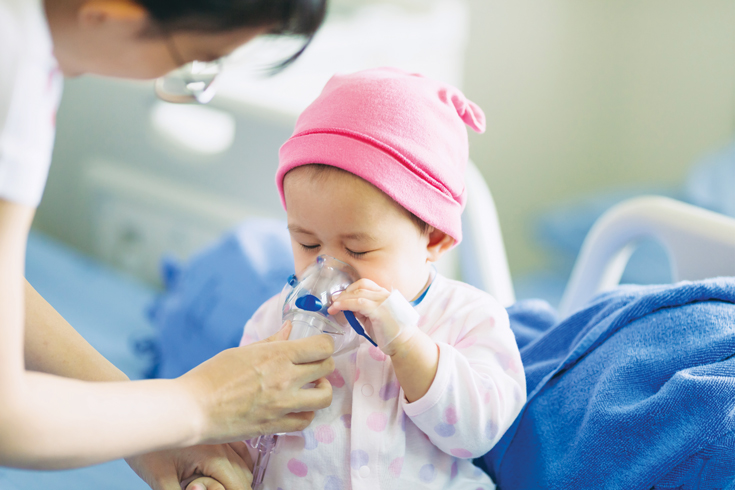Multisystem inflammatory syndrome in children (MIS-C) is a serious condition associated with COVID-19. It was first identified back in April 2020 by doctors in the United States. In Malaysia, between June 2020 and December 2021, a total of 174 cases of MIS-C was confirmed by the MIS-C Malaysia Study Group. Data shows that a majority of these cases require critical medical attention from the paediatric intensive care units. In this article, Dr Livia Chow Huey Ling, Consultant Paediatrician & Neonatologist at Pantai Hospital Ayer Keroh, explains more about MIS-C, its symptoms and the treatment protocol.
We know that COVID-19 can infect children, and the severity in the majority of the affected children are mild. However, recently there have been many cases where children developed serious complications when infected with COVID-19, particularly a condition called multi-system inflammatory syndrome in children (MIS-C).
We have also been seeing an upward trend in the number of children below 12 years old being infected with COVID-19. There have been 50,826 children being tested positive till mid of February this year. At the same time, we are also seeing more children requiring admission to the Paediatric Intensive Care Unit (PICU). From June 2020 till December 2021, there have been 174 cases of multi-system inflammatory syndrome in children (MIS-C).
What is MIS-C?
MIS-C is a severe but rare complication of COVID-19 infection where different organs in the body get inflamed. For example, the brain, heart, eyes, lungs, kidney, skin and digestive tracts. MIS-C usually occurs in older children between 8 to 11 years old. However, cases occurring in younger and older children have also been reported.
Causes of MIS-C
The exact cause as to why MIS-C occurs is not yet fully understood, and to date, it is being continuously studied. It is believed that it is caused by an overactive immune response to the COVID-19 virus and thus results in inflammation and damage to various organs in the body.
Symptoms to be aware of
What are the symptoms that parents should look out for if they suspect that their child might have MIS-C? There is a variable presentation of MIS-C in children, and each child might not have the same symptoms. Common symptoms include:
- Persistent fever lasting between 3 to 5 days
- Tummy pain
- Vomiting
- Diarrhoea
- Skin rash
- Feeling lethargic
- Heart palpitations
- Red eyes
- Swollen hands or feet
- Swollen lips or tongue
- Headache
- Swelling of lymph nodes
Warning signs that indicate a more serious condition are:
- Trouble breathing
- Severe tummy pain
- Difficult to wake your child up
- Pale or bluish discolouration of the lips or skin
- Child appears confused
If your child develops any warning signs or appears very sick, bring your child to the hospital immediately. Similarly, if your child has any of the above MIS-C symptoms, please consult your doctor immediately for further advice.
Doctors will need to perform several tests, such as a COVID-19 test, some blood work to look for evidence of inflammation in the body to detect any organ impairment and to look for other causes besides MIS-C that can present with similar presentations. Depending on the symptoms that the child presents with, there might be a need for a chest X-ray and a heart scan.
Treating MIS-C
Children diagnosed with MIS-C will usually need hospitalisation, and some may require treatment and closer observation in the Paediatric Intensive Care Unit (ICU). Treatments will include medication that reduces the body’s excessive immune response and medication that reduces inflammation in the body. Other treatment and support will be given depending on the condition of the child as well as test results. Most children recover from MIS-C if detected and treated early.
From January to March this year, we see more children infected with COVID-19 and more of these children are presenting with more serious symptoms that need care in the PICU. The best way to prevent complications of COVID-19 infection, which includes MIS-C, is to prevent COVID-19 infection in the first place. Thus, it is crucial to maintain strict preventative measures. It is also advisable for children above five years old to get the COVID-19 vaccination to protect against COVID-19 infection. Above all, we should not let our guard down as we prepare to enter the endemic phase.

Consultant Paediatrician & Neonatologist,
Pantai Hospital Ayer Keroh



